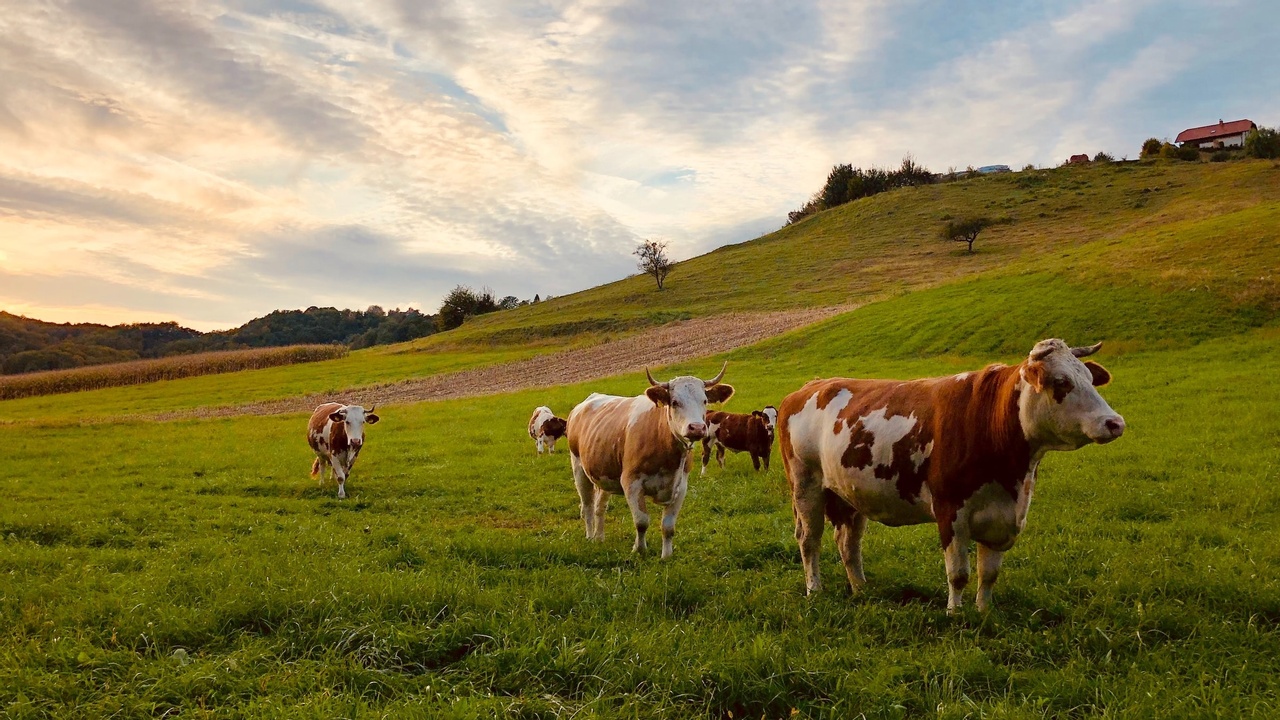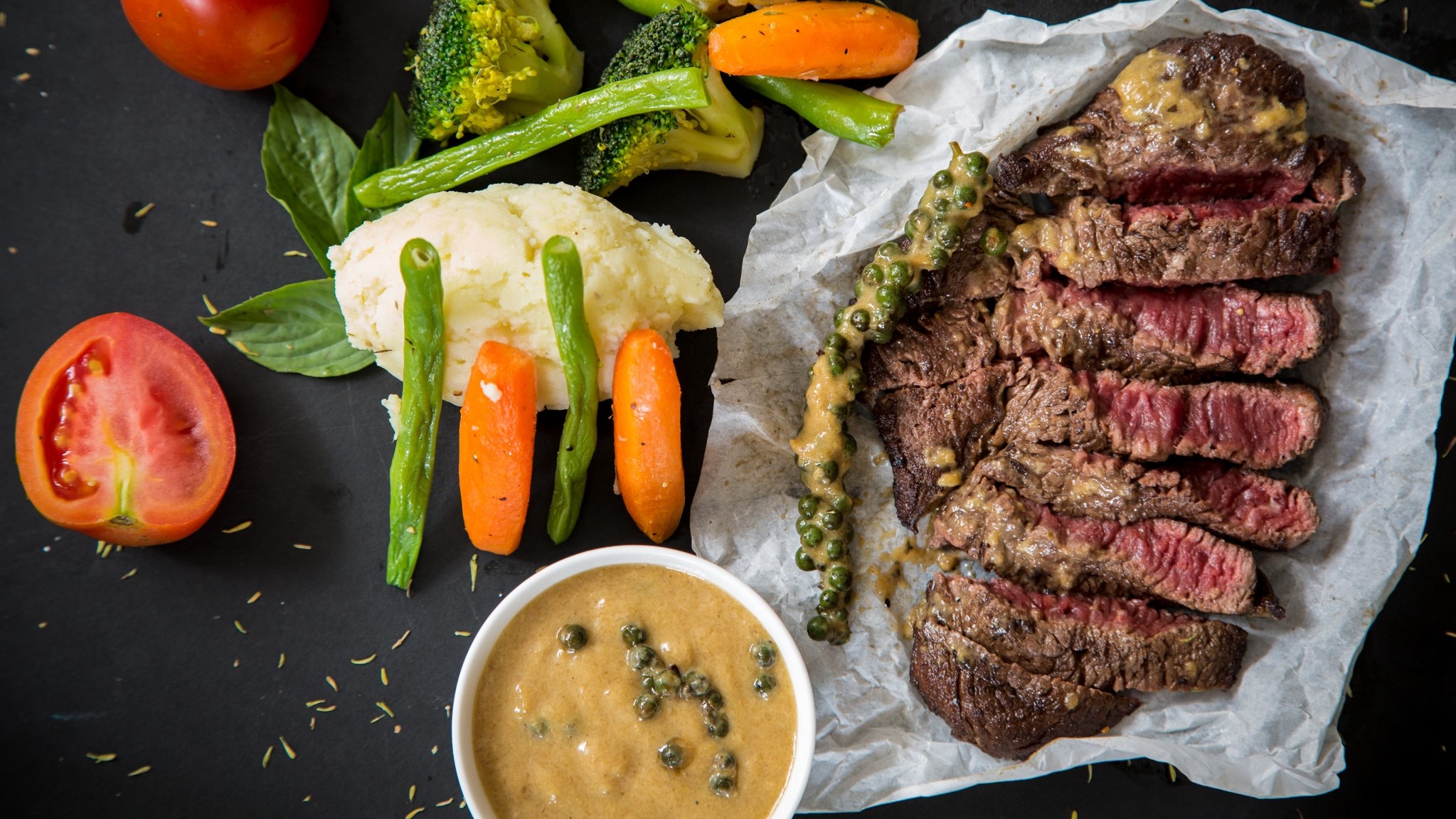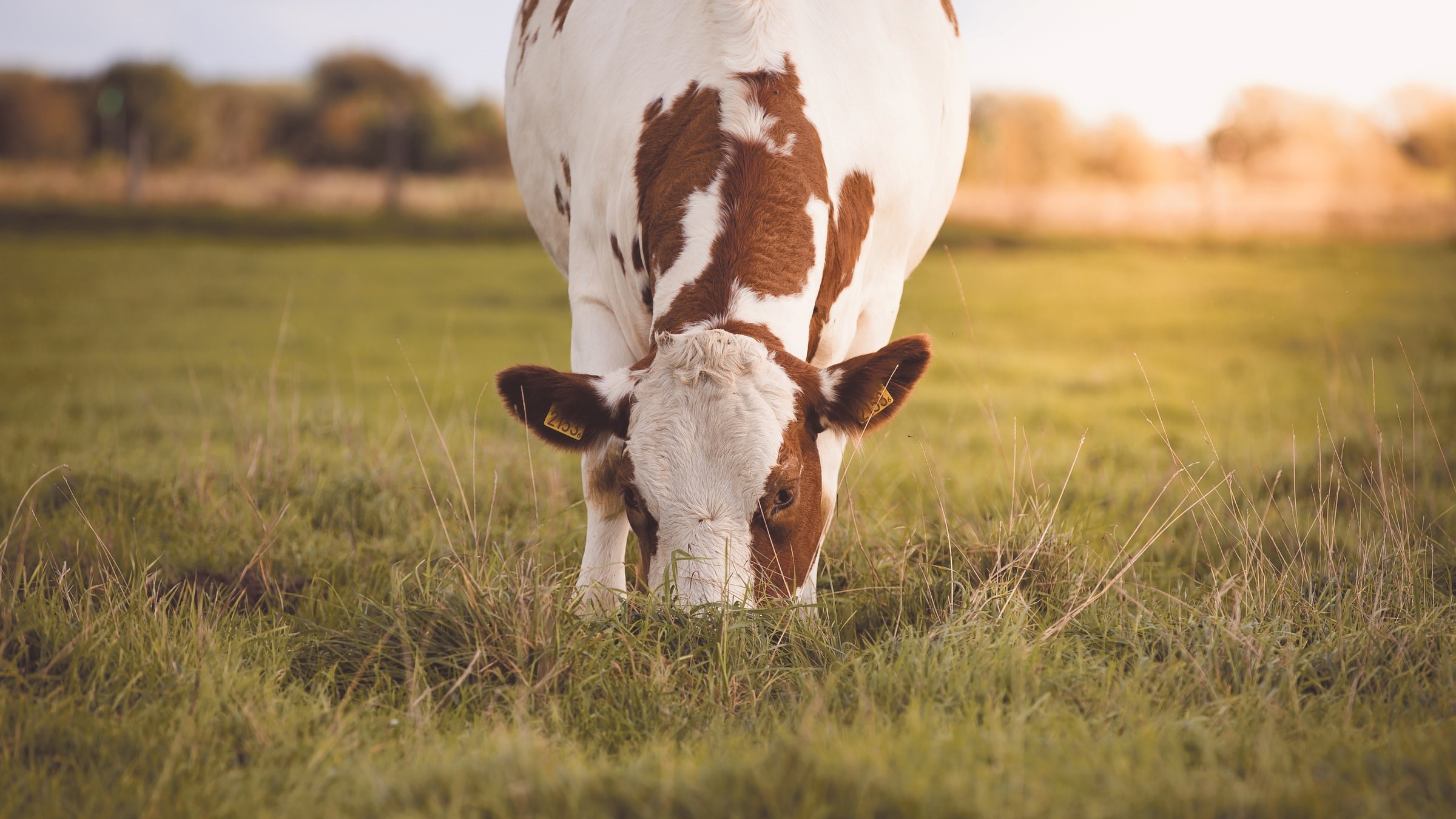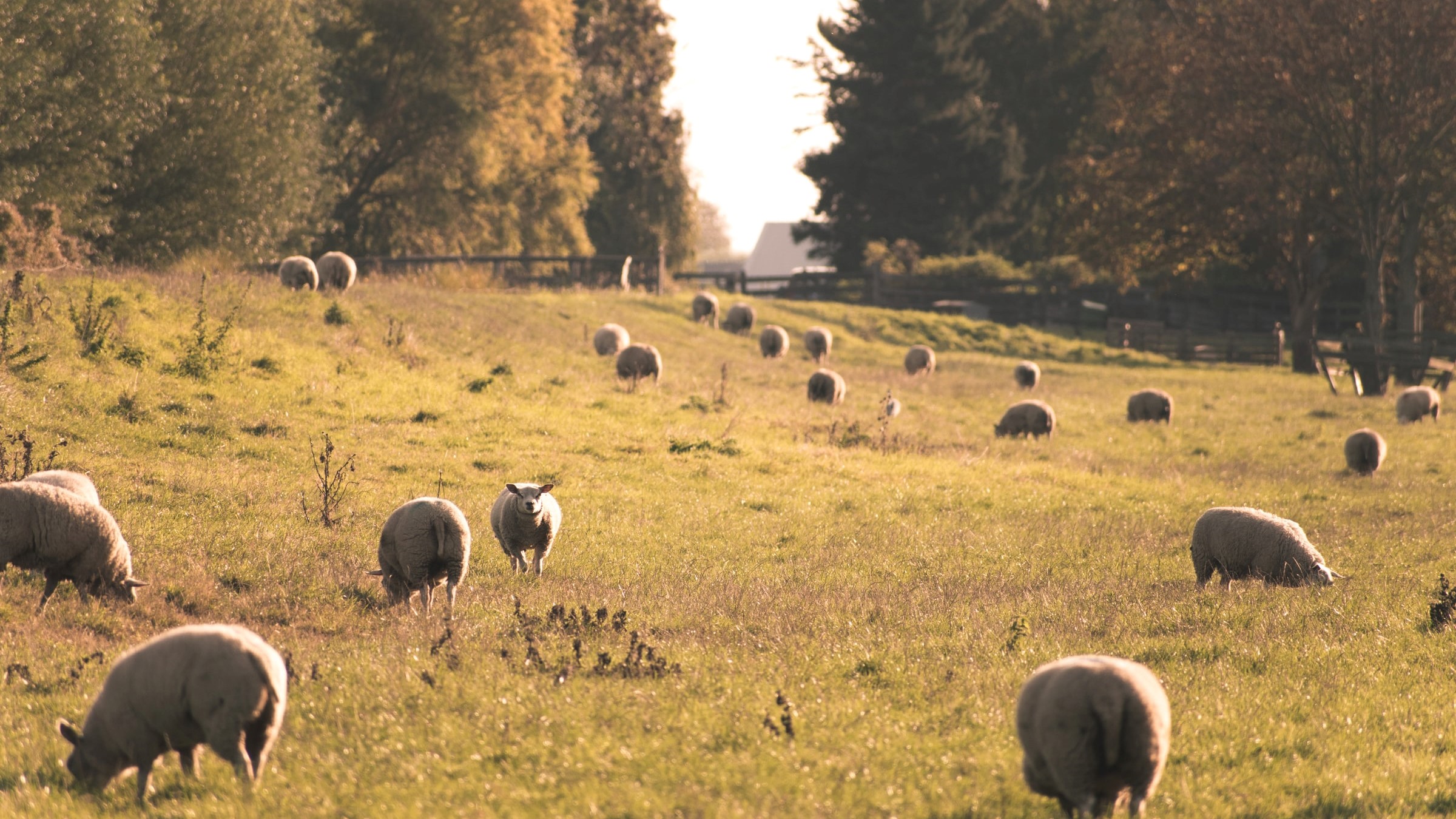July 2021: The Month in Review

With notable corporate engagement and interest in the field, July marked a strong start to the third quarter of 2021 for the cellular agriculture food industry. Cellular agriculture is the field of producing animal products, like meat and dairy, directly from cell cultures instead of raising animals. Compared to conventional livestock agriculture, cellular agriculture offers a more sustainable way to produce animal products to meet the growing global demand without requiring animals.
From Asia’s largest funding round to date to further corporate interest in the cellular agriculture food field, we take a look at what happened this July in cellular agriculture.
Investments
Aleph Farms
Aleph Farms announced the company raised a massive $105 million Series B funding round. Based in Israel, Aleph Farms uses cellular agriculture to produce cell-based meat, specifically steak. Using its proprietary technology platform and 3D bioprinting, Aleph Farms is the first company to produce a cell-cultured steak.
Aleph Farms’ Series B funding round was co-led by the Growth Fund of private equity firm L Catterton and DisruptAD, the venture arm of Abu Dhabi’s sovereign fund ADQ. The funding round also featured Skyviews Life Science and a consortium of food and meat companies, such as Thai Union, BRF and CJ CheilJedang. Existing investors in Aleph Farm’s funding round included VisVires New Protein, Strauss Group, Cargill, Peregrine Ventures, and CPT Capital.
 Aleph Farms' cell-based ribeye steak prototype
Aleph Farms' cell-based ribeye steak prototype
The funding round brings Aleph Farms’ total funding to date to $119 million. In May 2019, Aleph Farms raised $12 million in Series A funding. Aleph Farms is the third cell-based meat company to raise over $100 million in funding after Upside Foods (formerly Memphis Meats) and Eat Just-subsidiary Good Meat.
It is promising to see multiple food and meat companies invest in Aleph Farms’ Series B. As cell-based meat companies look to scale and come to market, strategic partnerships with established food players can bring cell-based meat to market and develop a supply chain around the future of food field. Aleph Farms previously announced a partnership with Brazilian meat company BRF to bring cell-based meat to Brazil in March 2021.
Moving forward, Aleph Farms plans to use the funding round to execute plans for large-scale global commercialization and portfolio expansion into different types of animal meats. The company plans to continue to scale up manufacturing ahead of a market launch in 2022.
Regarding regulation, Aleph Farms is currently working with different regulatory agencies on plans for market entry. When announcing its ribeye steak prototype, Aleph Farms shared that the company is targeting Japan and Singapore for the pilot launch of its cell-based meat.
Gourmey
Gourmey announced the French startup raised $10 million in seed funding to produce cell-based foie gras. Based in Paris, Gourmey uses cellular agriculture to produce cell-based poultry, specifically foie gras.
Gourmey’s seed funding round was co-led by Point Nine Capital and Air Street Capital. The funding round also featured Heartcore Capital, Partech Partners, Big Idea Ventures, Eutopia, Ataraxia, and Beyond Investing. Gourmey’s funding round also included support from public institutions, including French public investment bank Bpifrance and the European Commission. Interestingly, both Point Nine Capital and Air Street Capital previously co-led cell-based fat company Mission Barns’ seed round in 2018.
 Gourmey's cell-cultured foie gras
Gourmey's cell-cultured foie gras
One of the largest seed rounds to date for a cell-based meat startup, Gourmey’s seed round is the largest for a startup focused on cell-based poultry products. Only Dutch startup Meatable has raised a larger total seed funding round to produce cell-based beef and pork meats.
It is promising to see both BPIfrance and the European Commission support Gourmey’s funding round despite vocal opposition from the French Agricultural Minister about the adoption of cell-based meats. Considering how several European countries have banned foie gras production due to animal welfare concerns, Gourmey’s platform could provide another way to produce the same French delicacy across Europe without requiring animals in the process. Places like New York City and the state of California have also banned the sale of foie gras.
Gourmey plans to use the funding round to scale the company’s production capabilities in Paris and prepare for global commercialization through the expansion of its poultry product portfolio and team. While Gourmey is currently focusing on foie gras, the startup is also exploring other premium meats as well. Gourmey shared the startup is currently working with regulatory agencies on a plan to enter the market in late 2022 or early 2023.
Shiok Meats
Shiok Meats announced the company raised a bridge funding round. Based in Singapore, Shiok Meats is the first cell-based meat startup in Southeast Asia. Founded by Sandhya Sriram and Ka Yi Ling, Shiok Meats plans to produce cell-based seafood, like shrimp and other crustaceans, via cellular agriculture.
Shiok Meat’s bridge round was co-led by three large food companies: Vietnamese seafood giant Vian Hoan Corporation (VHC) and South Korean food conglomerates Woowa Brothers and CJ CheilJedang. The bridge round also featured Irongrey, Big Idea Ventures, Boom Capital, and Mindshift Capital.
 Shiok Meats' cell-based lobster and shrimp prototypes
Shiok Meats' cell-based lobster and shrimp prototypes
While Shiok Meats did not disclose the total amount raised, the company shared the bridge round brings its total funding to approximately $30 million. In September 2020, Shiok Meats raised $12.6 million in its Series A funding round and previously raised $3 million in a previous bridge financing round in June 2020.
It is also promising for Shiok Meats to see leading Asian food conglomerates invest in its bridge financing round. VHC previously announced a partnership with Hong Kong-based Avant Meats in January and CJ CheilJedang recently invested in Aleph Farms’ Series B financing.
Shiok Meats plans to use the funding round to support its ongoing research and build the first pilot plant for cell-based crustacean meat production. After showcasing the first cell-based shrimp product in March 2019, Shiok Meats aims to launch its first shrimp product to market by 2023. In addition to shrimp meat, Shiok Meats previously showcased the first cell-based lobster meat in November 2020.
Biomilk
Cell-based dairy startup Biomilk announced that Coca Cola Israel plans to invest $2 million in the cell-based dairy company through its operation company the Central Bottling Company (CBC). According to the R&D agreement, CBC will support Biomilk’s research to accelerate the market arrival of its cell-based dairy products. CBC will invest $1 million upon signing the agreement and invest an additional $1 million upon completion of certain milestones.

Biomilk aims to produce its first cell-based cow’s milk this year and aim to release its cell-cultured human breast milk in 2022 for testing. As part of the deal, Biomilk will transfer future products to CBC-owned Tara Dairy for pilot commercial production. While many global dairy leaders have previously invested in cellular agriculture companies, Coca Cola Israel’s investment in Biomilk appears to be the first time that a global beverage conglomerate is looking to invest in the cellular agriculture field.
In April 2021, Biomilk became the first cell-based dairy to go public by being traded on the Tel Aviv Stock Exchange.
Multus Media
Multus Media announced the startup raised £1.6 million in funding. Based in London, UK, Multus Media is one of several startups working on producing an inexpensive cell culture media formulation for the cell-based meat industry, a major scaling hurdle for the industry. The cell culture media is the nutritious mixture that cells grow in, which includes the cell culture serum. The cell culture media provides all of the nutrients and growth factors that cells may need to replicate or differentiate into another cell type.
 Multus Media team
Multus Media team
The funding round will allow Multus Media to bring its first product to market, Proliferum M, an animal-free serum substitute. Multus Media recently went through IndieBio, a leading life science accelerator program, where many other cellular agriculture startups emerged.
Mosa Meat Launches Phase 2 of Scaling Production
Dutch cell-based meat company Mosa Meat announced the launch of its second phase of scaling its production process. Launching a new space in its Maastricht headquarters, Mosa Meat shared Phase 2 of scaling involved using larger bioreactors to produce larger amounts of cell-based meat.
 Mosa Meat's cultured beef burger
Mosa Meat's cultured beef burger
According to the company, Mosa Meat’s automation team created its own process control software to perform operations such as “automated media exchange in the different types of bioreactors”, allowing for cell-culturing to take place 24 hours a day. In May 2021, the company reduced the cost of producing its cell culture medium for fat cells by 65 times since September 2019 and removed the need for fetal bovine serum (FBS).
MeaTech 3D Announces Cell-Cultured Pork Plans and Partnership
Cell-based meat company MeaTech 3D announced plans to develop cell-based pork meat alongside its cell-based beef and chicken development lines. The first public cell-based meat company will initially focus on developing a stable porcine cell line that can divide indefinitely and differentiate into the various cells found in pork meat. MeaTech also shared that the company submitted its patent application in the US for its 3D bioprinting technology. In the future, MeaTech plans to license its technology to customers along with meat and alternative protein supply chains to produce cell-based meat.

Following the announcement, MeaTech also announced a signed letter of intent (LOI) with Israeli food corporation Tiv Ta’am to cooperate in the joint development of cell-based meat products. According to the LOI, Tiv Ta’am and MeaTech will work to sign a binding agreement that will include cooperating on research and establishing a cell-based meat production facility. Following MeaTech’s announcement to develop cell-based pork meat, Tiv Ta’am also expressed interest in cooperating around cell-based pork fat as a raw ingredient.
Nestle Confirms Cultured Meat Interest and Partnership with Future Meat
Shortly after the report was released, Nestle confirmed that the food conglomerate is looking into cell-based meat with a partnership with startup Future Meat Technologies. According to the report, Nestle has been working on an alternative meat product that would blend plant-based ingredients with cell-based meat to create a hybrid meat.
 Future Meat Technologies' new pilot production plant
Future Meat Technologies' new pilot production plant
Nestle also shared the company is partnering with Future Meat Technologies to explore the potential of cell-based meat and its components. Nestle did not comment on whether its exploration would lead to a potential market entry into the sector. In June, Future Meat set up a pilot production plant to start producing its cell-based meat in Rehovot, Israel. According to Future Meat, its pilot plant can produce up to 500 kilograms of cell-based meat per day.
BlueNalu Shares Food Safety Recommendations for Seafood
As more regulators look to establish food safety and regulatory frameworks, cell-cultured seafood company BlueNalu shared its recommendations on how cell-based seafood companies should look to set their food safety strategy in place. From pursuing globally recognized third-party certifications and partnering with reliable suppliers, there are many ways producing seafood directly from cells can enhance food safety and transparency.
 BlueNalu's cell-cultured yellowfish amberjack prototype
BlueNalu's cell-cultured yellowfish amberjack prototype
In June 2021, BlueNalu announced its framework for food safety and quality assurance for its cell-cultured seafood products. To demonstrate the highest possible standards for its cell-cultured seafood, BlueNalu committed to pursuing third-party certification recognized by the international Global Food Safety Initiative (GFSI), an international organization recognized for setting food safety standards that go beyond domestic government regulations. BlueNalu also selected quality management solutions software TraceGains to manage its quality assurance system frameworks.
Mzansi Meat Wants to Use South African President’s Bull to Make Cell-Based Meat
Based in Cape Town, South Africa, new startup Mzansi Meat is the first startup on the continent of Africa working to produce cell-based meat. As the company aims to develop its own cell lines from local animals, Mzansi Meat asked South African President Cyril Ramaphosa if the startup could extract cells from his prize-winning Ankole cattle. Mzansi Meat also recently shared on social media that the startup received its cell-based meat growth factors from Canadian cell culture media company Future Fields. Mzansi Meat aims to have its first product prototypes available to sample by the end of 2021.
Alt Protein Company Eat Just Mulls IPO
Alternative protein company Eat Just shared the company is targeting a valuation of $3 billion as it considers to go public via IPO during the fourth quarter of 2021 or early next year. Previously, in November 2020, Eat Just co-founder and CEO Josh Tetrick said the company aims to first become profitable through its plant-based products in 2021 before exploring a potential IPO.
After launching the cell-based meat to market through its subsidiary Good Meat, Eat Just claims to be on track to achieve several milestones this year, including operating profitability and scaling production. Interestingly, following US regulatory approval in the next six to twelve months for cell-based meat, Eat Just CEO Josh Tetrick expects China to be among the next nations to approve cell-based meat with its own regulatory framework. In March 2021, Eat Just raised a massive $200 million funding round
Future Fields Launches Transferrin Growth Media Supplement
Canadian cellular agriculture company Future Fields announced the launch of its latest product, a transferrin-enriched growth media supplement. Transferrin is an important recombinant protein found in the growth media formulation, and Future Fields developed the product through its EntoEngine platform. By growing growth factors and ingredients in drosophila, Future Fields believes it can reduce the cost of scaling by around 1,000 times using its patent pending process. Future Fields has previously launched a FGF2 growth factor product and FGF2-enriched growth media supplement. Future Fields first shared its EntoEngine platform in May 2021.
 Future Fields' transferrin product via its EntoEngine platform
Future Fields' transferrin product via its EntoEngine platform
Qorium Raises Funding to Make Cell-Cultured Leather
Cell-grown leather, anyone? The startup Qorium announced the team raised €2.6 million in funding to use cellular agriculture to produce cell-cultured leather. Having recently developed its proof of concept, Qorium raised its funding round to continue to scale its technology platform. The company claims its cell-cultured leather takes 99% less water and 66% less energy to produce than conventional leather. Interestingly, one of the co-founders of Qorium, Dr. Mark Post, is also the co-founder of Dutch cell-based meat startup Mosa Meat.
Cell-Cultured Chocolate, Anyone?
Scientists in both Switzerland and the US are exploring the idea of producing a more sustainable source of chocolate to keep up with its growing demand. Considering that 70% of the world’s cocoa is grown in West Africa, cell-cultured chocolate may address widespread deforestation and human rights issues associated with conventional chocolate. In addition, cell-cultured chocolate may also require less water and resources to produce.

Scientists at the Zurich University of Applied Sciences (ZHAW) in Switzerland claim to be the first team to produce a chocolate directly from cell cultures instead of raising the cocoa crop. Similarly, new startup California Cultured was recently part of IndieBio’s accelerator program to produce chocolate directly from cell-cultures. According to the company, California Cultured is growing its plant stem cells in a low-cost plant cell culture media formulation to produce chocolate products with the best flavor and reduced need to add additional sugar.
XPrize Announces Semi-Finalists for Feed the Next Billion
After first launching in December 2020, the XPrize announced the semi-finalists for its ‘Feeding the Next Billion’ competition. With the aim to develop a sustainable future food system, the XPrize competition is a four-year, $15 million competition with the aim to produce chicken breast or fish fillet alternatives that replicate and outperform conventional chicken and seafood. Interestingly, the semi-finalists are evenly split between cell-based and plant-based startups.
In the World of Plant Based

Beyond Meat
Plant-based meat company Beyond Meat announced the launch of the latest version of its plant-based chicken product. The company announced the plant-based chicken product will debut in 400 restaurants. Beyond Meat has not shared plans to launch in grocery stores yet. In July 2020, KFC in the US announced the fast-food restaurant chain will sell the plant-based Beyond Chicken at more than 50 locations in southern California following a pilot test in Atlanta, Georgia in August 2019.
Impossible Foods
At the recent Future Food Tech Summit, Impossible Foods CEO Pat Brown suggested the plant-based meat company was open to selling its heme protein to other future food companies and brands in the future. One of the key ingredients to the plant-based Impossible Burger, the company’s soy leghemoglobin protein helps the company produce plant-based products with a similar taste and texture as conventional meat. If other plant-based products are open to using Impossible’s heme ingredient, it may increase public acceptance of plant-based meat alternatives by being closer to the taste of conventional meat products.
NotCo
Soon after raising its Series C round, Chilean plant-based milk and meat company NotCo announced the company raised a massive $235 million in Series D funding. With a valuation of $1.5 billion, NotCo first entered the US market in September 2020 and plans to further expand its product lines. NotCo also previously went through the accelerator program at IndieBio.
Nobell Foods
The startup Nobell Foods came out of stealth mode and raised $75 million in Series B funding to produce dairy proteins directly from plants. Based in California, Nobell Foods has designed its soybean plant to produce its casein protein in the soybean.
Instead of using microorganisms to produce its dairy proteins via acellular agriculture (also known as precision fermentation), Nobell Foods claims its plant-based platform can rapidly scale and reach cost parity more quickly than precision fermentation.
Harnessing a plant-based platform to produce animal-free dairy proteins, Nobel Foods almost blurs the line of whether the company is a plant-based or cellular agriculture company based on its product (an animal protein) and its production platform (the soybean plant). A similar company, Moolec Science, refers to the process as molecular farming.
Conclusion

From funding rounds to new product launches and commercial partnerships, July marked a strong start to the third quarter for the cellular agriculture field. From investments to corporate partnerships, there appears to be a lot more corporate engagement and interest in cellular agriculture food companies. As cell-based meat companies look to scale and come to market, strategic partnerships with established food players can bring cell-based meat to market and develop a supply chain around the future of food field.
Notably, all the companies highlighted this July regarding their partnerships with major food and beverage corporations are based in Asia, from Israel to Singapore. The geographic distribution reflects how companies across the continent are harnessing strategic partnerships with traditional food and meat players to accelerate their path to market.
As the largest funding round to date for an Asian cell-based meat company, Aleph Farms’ funding round is significant in many ways. Considering that less than 11% of all cellular agriculture food investments have gone to companies based in Asia prior to Aleph Farms’ financing, the funding round may indicate that more investors will start to further support startups in Asia as they achieve their scaling milestones. With Aleph Farms’ latest round, approximately 16% of all cellular agriculture food investments have gone to startups based across Asia.

This July also highlighted how cellular agriculture can go beyond animal food applications. With new funding for a cell-cultured leather startup to companies exploring cell-culturing chocolate components, cellular agriculture can create a wide range of products to create a more sustainable food system.
In particular, with the rise of new companies like Nobell Foods, we are starting to see the emergence of new companies working at the intersection of both the plant-based and cellular agriculture fields.
Moving forward, it will be interesting to see if more companies look to harness plants as a bioreactor platform to produce animal proteins. European startups ORF Genetics and Tiamat Sciences both utilize plant platforms to produce growth factors for cell-based meat production.
In particular, it will be important for regulators to explore how to identify an animal protein produced in plants and how to label them. For example, if the plant’s protein is harvested alongside the animal protein, would that classify all molecular farming products as hybrid protein mixes? In that case, can the resulting animal protein product be labelled as plant-based?
From acellular agriculture startups like New Culture and Remilk using microorganisms to produce animal-free dairy proteins to startups like Biomilq and TurtleTree Labs culturing mammalian cells to produce cell-based dairy products, it is great to see companies like Nobell Foods add another way to produce more sustainable animal products in the future. For the future of food.
Stay connected with CellAgri
Join our mailing list to receive the latest news and updates weekly from the cellular agriculture industry. Your information will not be shared.



